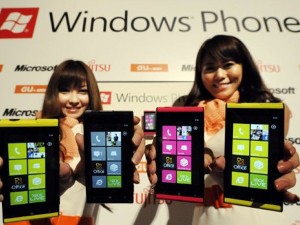Microsoft faces suit over trackers in Windows 7 smartphones
SAN FRANCISCO – Microsoft on Thursday was in the crosshairs of a lawsuit charging that smartphones powered by Windows 7 software noted the whereabouts of users even if they didn’t want to be tracked.
A suit filed a day earlier on behalf of a woman from the US state of Michigan maintained that Microsoft gathered location information from Windows 7 smartphones in disregard of people refusing consent for the process.
“Microsoft consciously designed its OS [mobile operating system] to siphon geographic location information from users and transmit their specific whereabouts to Microsoft’s servers,” lawyers said in court documents.
“Microsoft’s scheme is executed through its camera application, which comes standard with a mobile device running the Windows Phone OS,” the filing maintained.
The first time a Windows 7 phone user opens the pre-installed camera application a box pops up asking for permission to automatically tag images with the device’s location.
“This information also helps us provide you with improved location services,” read a copy of the pop-up box message included in court paperwork. “We won’t use the information to identify you or contact you.”
Phone users can select between “allow” and “cancel” options.
If Windows phone users opt for “cancel,” the camera software continues to record latitude and longitude coordinates of handsets along with locations of nearby mobile service towers and Wi-Fi networks, the lawsuit charged.
The lawsuit filed on Microsoft’s home turf in the state of Washington accuses the technology titan of violating US stored communications and electronic communications privacy acts along with unjustly enriching itself.
Lawyers are seeking class-action status to represent all Windows 7 phone users and want Microsoft to be ordered to pay cash damages and stop the location-tracking practice.
Microsoft declined to comment.
The lawsuit came amid ongoing concern regarding the types of data gathered from smartphones that are increasingly central to modern life.
